Our Valuation Team has been active throughout Atlantic Canada for over four decades, providing valuation and real estate advice on just about every property type and for all purposes … Transfer of Ownership (purchase or disposal, merger and acquisition, partnership valuation, foreclosure, rental value, due diligence), Financing, Litigation (assessment appeals, expropriation, divorce, environmental contamination, defects in title, professional liability, bankruptcy, fraud and misrepresentation, First Nations Land Claims), Fire Insurance (actual cash value, replacement cost), Performance Measurement (portfolio evaluation, company asset analysis, highest and best use, feasibility studies, tenant mix), Financial Reporting (International Financial Reporting Standards, balance sheet), Taxation (charitable donations, property assessment, capital gains tax, HST self-assessment, ecological gift program, estate settlement, conservation easements, gift or inheritance), and Appraisal Review. The following are a small sample of the type of real estate valuation assignments we have undertaken since 1976:
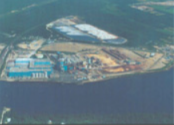
Our Valuation Team leader on this project confessed afterwards to being a little taken aback when he first glimpsed his assignment: two of the world’s most modern pulp mills totalling over 2 million ft.² … perhaps we should have budgeted more than one assistant! No matter. The first is always the worst … and our Property Tax Division was also able to reduce the tax load. Our Valuation Team has tackled many pulp mills since then: in fact we can claim a proud history of valuing an extensive range of heavy industrial property: heavy water plants, smelters, aerospace facilities, shipyards, fertiliser plants, container piers, tank farms, marine terminals, grain elevators, carpet mills, molasses processing, steel fabrication … We like a challenge.
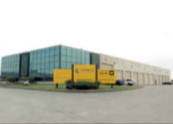
Our consultants in coveralls are equally at home donning their work boots and hardhats in Saint John or St. John’s, Toronto or Trepassy. They understand the difference between job shops and machine paced assembly lines, batch flows and continuous flows … and they ask questions. How does the present building design facilitate or impede production? Does the site configuration assist or constrain materials handling and truck loading? Is there a pool of skilled labour available locally? If not, who bears the cost of training and education; the Province or the employer? Where are the markets for the products? How do they get there? How are changes in technology impacting on the production process? Is there potential for tax savings, disposal of surplus land, increased rents, is the fire insurance adequate?
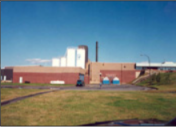
Food processing plants are located near their source of supply rather than their market. Most fish plants have their own wharves, often their own fishing fleet and guaranteed access to a fish quota. Some exist to provide employment, not profit. It is therefore necessary to have an understanding of the politics governing the particular industry. This is critical in the Atlantic Region because the population base will only support a very limited number of meat processing plants for example … These external factors usually have a greater impact on value than design features of the plant such as the capacity of its killing floor. Fruit and vegetables processed by plants in Nova Scotia’s Annapolis Valley are sold countrywide … so the value of the real estate is more a function of growing conditions in competing agricultural regions of Canada, than the internal features of the plant. Dairy production, on the other hand is sold regionally … often provincially. However supply management is the order of the day and milk quotas are government controlled.
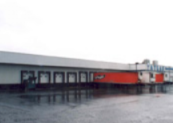
The value of warehouse or similar service orientated real estate is usually dictated by the condition of the local real estate market, rather than the economic viability of the specific occupier … unless the building is so large or otherwise specialised as to command no other tenant. Every six months our Economic Intelligence Unit surveys every industrial building available for rent in the six major centres of Atlantic Canada measuring rents, operating costs, vacancy: carefully tracking trends, the better to assist clients extract the maximum value from their real estate assets.
This sector encompasses a wide range of service facilities in addition to warehousing: automotive dealerships, fast food outlets, gasoline service stations, free standing retail, corner stores, garages and so on. Our CompuVal® IT platform now contains specialty Service Facility modules to track revenue and operating expenses, facilitate peer comparison and identify value adding opportunities and trends.

No other type of real estate is so intimately tied to the fortunes of the occupier … and in Atlantic Canada none is so much at the mercy of government policy. Tourism is important to the region and periodic government subsidies through ACOA (Atlantic Canada Opportunities Agency) and other agencies have so expanded supply that they have, on occasion, devastated hotel values. Projecting future cash flow based on past experience can be a misleading exercise unless one is tuned to the ebb and flow of government policy. Nonetheless a thorough understanding of the industry is a pre-requisite and our CompuVal® IT platform now includes a hospitality module to track revenue and operating expenses, facilitate peer comparison and identify value adding opportunities and trends.

Independent Living, Assisted Living, Special Care and Nursing Care facilities are a growing part of the market, especially in Atlantic Canada, home of the country’s oldest population cohort. The provincial governments licence Special Care and Nursing Care homes, regulate daily rates and admission. They also dictate the number of beds and designate the location of the facility so their size varies depending on community needs. Access to a large pool of data, revenue, vacancy and operating expenses across a wide spectrum of extended care home types and sizes is key to arriving at an accurate property value. Our CompuVal® IT platform now includes an Extended Care module to track revenue and operating expenses, facilitate peer comparison and identify value adding opportunities and trends. Our Valuation and Property Tax Divisions capture a vast amount of data which, while confidential, facilitates peer comparison; whilst our Economic Intelligence Unit monitors demographic and psychographic data.
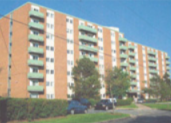
Apartment buildings, shopping centres, office buildings: depending on their location and size they may sell locally, regionally, nationally or internationally. Our Brokerage and Valuation Divisions are in touch with these markets on a day to day basis. We know which markets are hot … and which are not. Who is buying and who is selling, and why. CompuVal®, our IT platform incorporates custom modules for office, shopping centre, multi-use industrial and hotels to track rents, operating expenses, capitalisation rates, internal rates of return, on a property specific basis to identify opportunities for increasing revenue, reducing expenses … even projecting the optimum time to sell or buy …

Our Valuation Team has been involved in numerous special purpose assignments, most of them in the Atlantic Region or Ontario but also in other parts of Canada. This type of project is characterised by its variety and the concomitant research, industry knowledge, analytical and judgmental skills that have to be employed. The assignments have included the following: